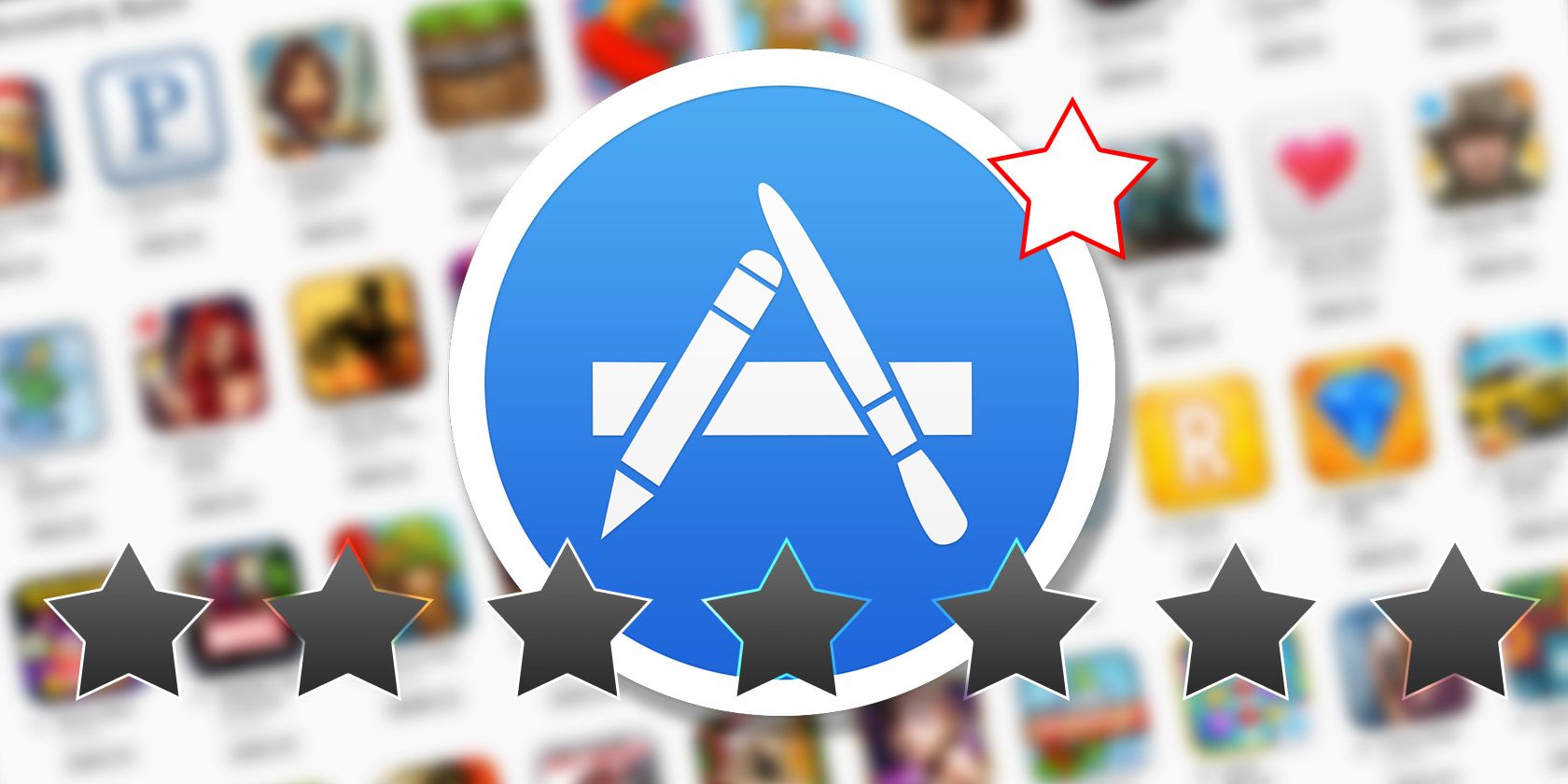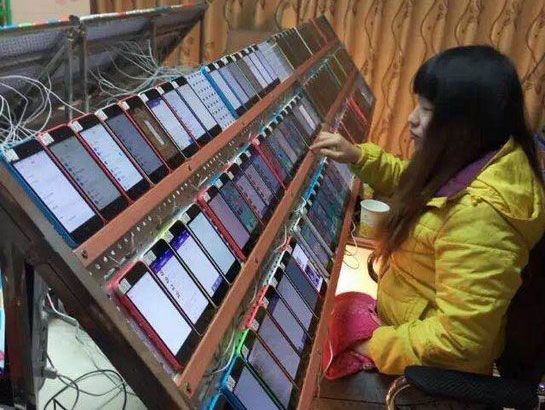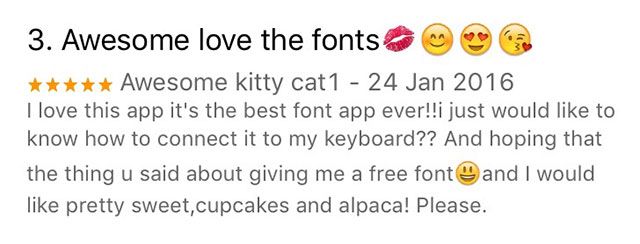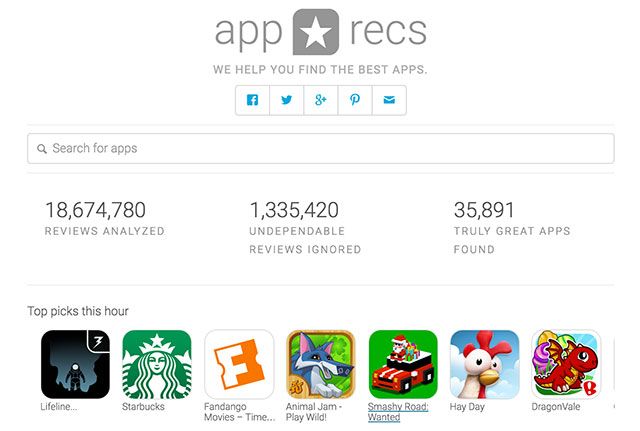As more mobile apps than ever fight for recognition and downloads in a world where consumers increasingly expect something for nothing, many are playing dirty when it comes to getting noticed.
Apple's notoriously stringent App Store guidelines strictly forbid manipulating reviews and ratings, but untrustworthy and even paid reviews aren't hard to spot. One developer has even taken it upon themselves to harness the App Store API for the purpose of scrutinizing reviews.
Giving Your App a Boost
Everyone's got an app these days (yes, including us), and developers are feeling more pressure than ever to stand out from the crowd. For those offering their wares free of charge, this adds further pressure to the development process.
It's one of the reasons that many choose paid apps over freebies. Free to play games, ad-supported tools, and clones of already-successful apps are generally more susceptible to review manipulation than those that rely on an up-front fee, or a pre-existing service with a revenue stream that's not explicitly linked to mobile development.
That's not to say these are the only types of apps that fall foul of untrustworthy tactics in order to boost their ratings on the App Store. In order to manipulate App Store ratings and rankings, you don't need to be paying for reviews outright.
Take apps prompting users to leave reviews as an example. This is a common practice, and in its most benign form exists to counter the idea that users are far more likely to speak up if they love or hate something. Asking users for reviews all the time is just plain annoying and there are many app marketing guides out there that warn against the process. While not outright manipulation, marketers also recommend developers time these requests carefully to coincide with positive outcomes.
If your revenue stream relies solely on advertisements, getting as many users as possible to download your app is generally the goal. You may have noticed that some apps of this ilk take advantage of the review system by first quizzing users about whether they actually like the app. Only when a respondent provides a positive response are they then asked to rate the app on the App Store (at least some have the decency to provide a feedback form for negative responses).
Filtering is just one way some developers have learned to encourage only positive reviews, another is by incentivizing the review process itself. Providing users with rewards for leaving a review is more common in free to play games that use a system of credits, but other apps can use this to unlock certain paid features as well. This has the added effect of making users feel like they're getting something for nothing, further increasing the likelihood of a positive review.
Review exchange networks are another form of incentive that exist solely between developers, allowing them to share positive reviews for one app in exchange for a positive review for their own.
At the very bottom of the pile are paid app reviews. This could be as simple as spending $5 on Fiverr, or employing an agency that specialises in providing reviews en-masse. Such networks have been known to pay other users to submit reviews for them — the pay is low, so to make up for it, the volume of fake reviews is high.
There are also those offering to submit their own reviews, in-house. In February 2015 the image above was posted to Chinese microblogging website Sina Weibo, and is believed to show the rigging of App Store reviews on a massive scale.
Is Apple Doing Enough?
This isn't by any means limited to Apple's App Store. Google Play, the Amazon Appstore, the Windows Store — there are developers and companies taking advantage of every platform, ever since scoring a big hit meant a big payout. However, Apple is known for its notoriously tough guidelines and $99 developer fee, which prompts the question: how are developers still getting away with it?
Surprisingly, only one small point in Apple's lengthy App Store Review Guidelines specifically mentions the manipulation of reviews:
3.10 — Developers who attempt to manipulate or cheat the user reviews or chart ranking in the App Store with fake or paid reviews, or any other inappropriate methods will be removed from the iOS Developer Program
This is a rather broad definition, and terms like "manipulation" and "inappropriate" leave a lot of room for interpretation. There's no clear definition about whether bugging users for reviews constantly or gauging user feedback before prompting a review is acceptable. There's no hard limit on how often users can be asked to rate an app, and there's nothing stating that incentivizing reviews violates Apple's guidelines.
Based on the number of apps that engage in these practices, you might assume Apple isn't too bothered. The company has however been known to crack down on fake reviews in the past. In 2014 TechCrunch reported that the company was removing reviews — specifically incentivized reviews — for an app called Better Fonts Free which was offering fonts in exchange for reviews.
As recently as last week, reviews like the two above have been posted, so it seems that not only have the developers not been removed from the iOS Developer Program, they also didn't learn anything when thousands of their reviews disappeared overnight.
It's not clear how Apple expects the situation to improve if they continue to allow developers to violate their own rules, which aren't that well laid out in the first place.
Introducing AppRecs
In February 2016 Seattle-based software engineer Mark Edmond of Verdant Labs launched AppRecs, a search engine and review listing site that specialises in spotting fake reviews. The service finds reviews it believes are dishonest, then removes them and their overall ratings from the app's current score.
Mark's background includes eight years at Amazon, working on (among other things) the system through which buyers write reviews, in what he describes as "a very metrics-heavy culture." Right now, the service only works on the App Store, but "Android is next on the roadmap."
I spoke to Mark and asked him to spill the beans about exactly how AppRecs decides whether a review is trustworthy or not.
Some are relatively easy to detect. If, say, a reviewer has left 1000 reviews, all of them 5 stars, those are very likely to be bogus. If 20 reviewers have left positive reviews for the exact same 30 apps, those reviews are unreliable as well.
Some are a bit trickier. If an an app has a high number of reviews saying things along the lines of "they bribed me to leave a review," the validity of all its reviews is called into question, especially the extremely short ones.
To catch more sophisticated approaches to gaming the review system, we can look at a combination of factors. Much like with email spam detection, there are occasional false positives, and there undoubtedly are bogus reviews that remain undetected. To address this, the roadmap includes incorporating machine learning. In other words, the computer will discover the criteria for bogus reviews.
AppRecs uses Apple's official API, which Mark admits has its limitations. Calculations are limited to the last few hundred recent reviews, and the service only works for reviews that include text (which means fake star ratings aren't excluded).
AppRecs then ranks apps based on their trustworthiness using only what it perceives as genuine reviews. It even filters untrustworthy apps entirely, though you can choose to show filtered results when searching if you want to.
Mark also doesn't think Apple is doing much to combat these sketchy reviews.
They're clearly not doing enough. I've been surprised (and dismayed) at how easy it is to find apps that blatantly break the rules such as by rewarding users for leaving reviews.
I could speculate about reasons for this from, say, a PR, legal, resources, or profit motive standpoint, but ultimately I think both app users and developers suffer when Apple's review guidelines aren't enforced. Users wind up with lower-quality apps and their expectations not met. Honest developers find themselves on an uneven playing field.
Most "trusted" apps are either paid or quality free apps that accompany an existing service or are fairly well-known — Slack, Evernote, Amazon Prime Music, and so on. Mark decided to work on AppRecs after finding app discovery tedious, and it seems the service has been well-received so far.
Every week, I'm seeing growth in the number of people using the site, and I'm hopeful that it will remain on its trajectory to cover the data-crunching and hosting costs in the next few months.
AppRecs is using Apple's referral system as a revenue stream, just like we do here at MakeUseOf. It's not particularly lucrative, but it's an honest approach. Mark assured me that work on the Android version is still within his sights, with iOS taking priority because "Apple provides APIs for getting the data I need."
What Do You Think?
Has it occurred to you that a large number of reviews on the App Store are untrustworthy, incentivized, and even paid for by the developers themselves? Do you use Apple's star rating or read reviews when deciding what to try and buy? Would it be nice if Apple did more to resolve this issue?
Check out AppRecs and let us know what you think of the state of reviews on the App Store below.






